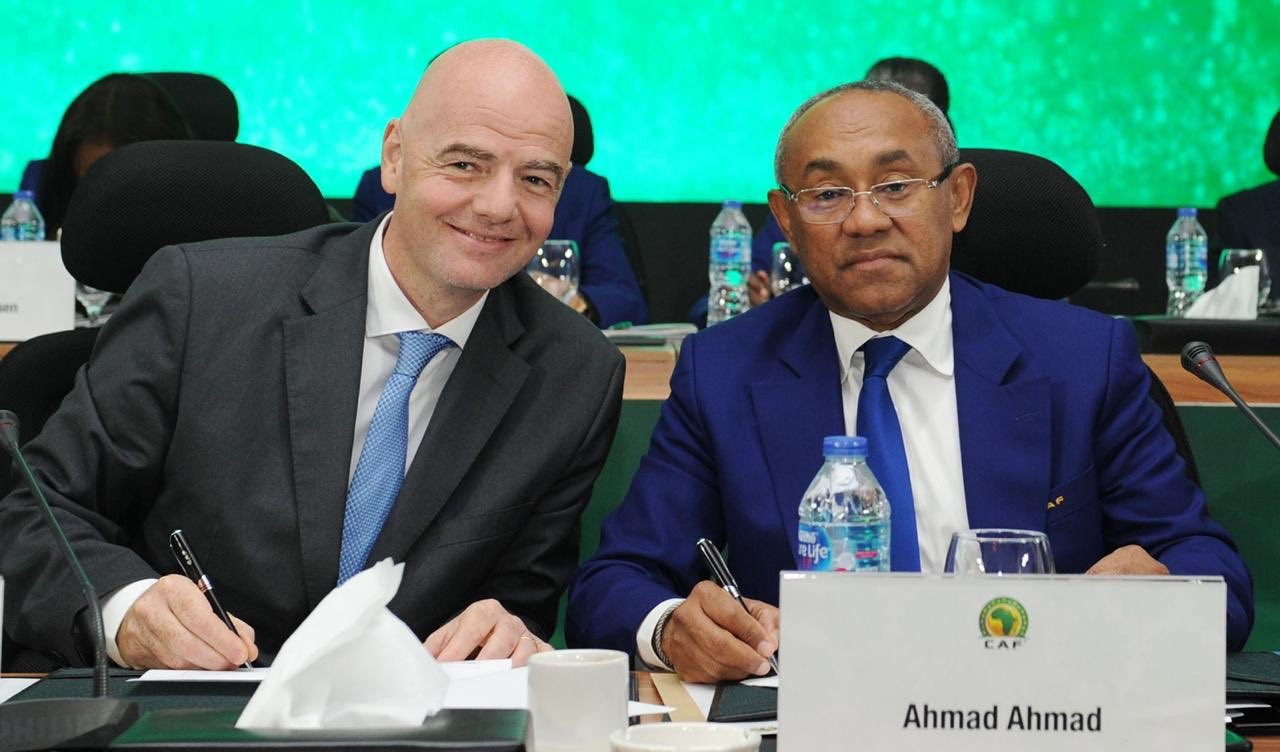An audit of the governing body for soccer in Africa has uncovered millions of dollars of financial irregularities, a development that threatens to bring down its leadership after more than a year of turmoil at the troubled organization.
The board of the governing body, the Confederation of African Football, or C.A.F., agreed last year to an independent review of its operations amid accusations of financial wrongdoing made by a group of former senior executives at the Cairo-based organization. Its president, Ahmad Ahmad, is also the subject of an ethics inquiry by soccer’s global governing body, FIFA, and by the authorities in France.
A 55-page report by the accountancy firm PWC, hired to audit the confederation, paints an ugly picture that is likely to lead to demands for swift action against the confederation’s leadership. The auditors found problems across the board, including with the dispensation of millions of dollars of soccer development funds sent to the African soccer body by FIFA.
The report also cited payments for gifts and, in at least one instance, for organizing a funeral.
“I have been left shocked and dismayed, though my fears have now been vindicated,” said Musa Bility, a former head of soccer in Liberia who had called for the audit in May before he was banned by FIFA for misappropriating soccer funds, allegations that he has denied.
The report provided yet another reminder of the challenges for good governance facing global soccer, which was rocked in 2015 when the United States filed a sweeping indictment that laid out in vivid detail accusations of decades of corruption and wrongdoing by some of the sport’s most senior administrators.
The executive summary of the PWC report, which was obtained by The New York Times, outlines a slew of troubling information. The report’s authors wrote that, “Potential elements of mismanagement and possible abuse of power were found in key areas of finance and operations of C.A.F.”
The report said that FIFA had remitted a total of $51 million to the African governing body from 2015 to 2018 and that since then, about $24 million of that amount had been disbursed by African soccer officials. In reviewing 40 payments totaling $10 million, auditors found that just five of the payments, adding up to $1.6 million, had sufficient documentation to confirm what the money would be spent on. The rest lacked information that in some cases made it impossible to identify the beneficiaries of the funds.
The auditors wrote that they were stymied in doing their work in many cases because the records “are unreliable and not trustworthy due to several manual adjustments.”
FIFA has so far declined to comment.
The revelations come a week after FIFA announced that a mission led by its secretary general Fatma Samoura ,intended to restore order at African soccer’s governing body, had been completed and that the administrator would be returning to its headquarters in Zurich.
“FIFA is happy that the joint effort made with C.A.F. was done and delivered within the initial proposed time frame and reiterates its commitment to be at the disposal of African football to assist in the process of raising its level to the top of the world,” FIFA said at the time.
Mr. Ahmad, the C.A.F. president, did not immediately respond to a message seeking comment. He is already facing an uncertain future amid an ethics investigation that started last year over claims of financial mismanagement and accusations of sexual harassment . He has denied any wrongdoing.
He was also questioned by French financial crimes prosecutors in Paris last summer over a payment to an equipment company based there that is linked to one of his close friends. That investigation was continuing.
The details of those payments also appear in the audit report. Flows of money connected to transactions between C.A.F. and bank accounts in the Gulf linked to the owner of the French company Tactical Steel were deemed by PWC to be “highly suspicious” and “may potentially indicate a kickback arrangement between parties involved or a case of tax evasion through offshore payments.” Tactical Steel has denied any wrongdoing.
The new revelations come at a crucial time for FIFA and for its president, Gianni Infantino, who has devoted much of the past year to C.A.F., one of soccer’s six regional governing bodies. This past week in Morocco, Mr. Infantino outlined an action plan for Africa at a gathering of the continent’s soccer leaders.
“We have to develop African solutions to African problems,” Mr. Infantino said, detailing initiatives that included a $1 billion fund to develop the sport on the continent.
But it now seems clear that the past will have to be dealt with before FIFA can move forward with any major changes at the African confederation.
The details revealed in the audit are likely to lead to a flurry of new cases for FIFA’s ethics department, which has yet to deal with a number of longstanding investigations, including the one into Mr. Ahmad.
The ethics complaint at FIFA accuses him of misusing hundreds of thousands of dollars of federation money to make $20,000 payments into the private bank accounts of some African soccer leaders, to purchase a fleet of cars for his use in Madagascar and to enter into questionable contractual agreements, including the one with Tactical Steel.
Mr. Ahmad has blamed the case on disgruntled former employees.
This month, FIFA and C.A.F. announced a joint action plan to take significant power away from the African organization’s board, which is composed of soccer leaders from across the continent.
The audit revealed that many of those same officials had received thousands of dollars in cash payments without a justifiable business case.
Credit Newyork times for additional story



CAF Confederation Cup
Simba book final spot in CAF Confederation cup

CAF Confederation Cup
Simba book final spot in CAF Confederation cup
Must See
-


AFRICA
/ 4 years agoSierra Leone FA President Isha Johansen endorses Patrice Motsepe for CAF President
Sierra Leone FA President who also doubles up as CAF Executive Council member Madam...
-


Football
/ 5 years agoIT JUST CAN NOT BE – AN AFRICA FULL OF MORONS?
By John De Mathews, There is an eerie silence around Africa, and it is...














